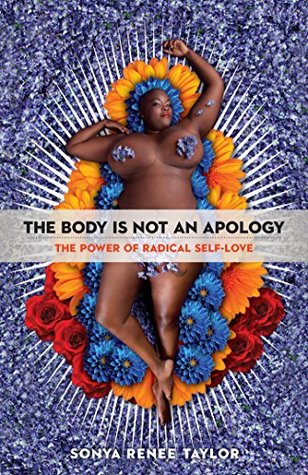More on this book
Community
Kindle Notes & Highlights
Read between
January 1 - January 4, 2021
You are not your thoughts! That said, avoiding your thoughts will not help you train your brain to think new ones. You must look at them with gentle kindness and say, “Thank you for sharing.“ And with love, release them.
In her poem “Three,” Nayyirah Waheed captures the fullness of the second pillar in five perfect lines: “and i said to my body. softly. / ‘i want to be your friend.’ / it took a long breath. / and replied / ‘i have been waiting my / whole life for this.’ ”
just as we were once babies who loved our bodies, we were also babies who loved moving them. We can invite ourselves back to this place. There was magic there.
Unapologetic Inquiry #23
According to society: Fat bodies are gross, bad, lazy, and can never be sexy; non-white are of less value and are never the default; lesbian or gay bodies are deviant and lustful; transgender bodies are wrong and sinful and indulgent; disabled bodies are broken and weak and lesser; aging bodies are soft and weak and sad; mentally ill bodies are weak and broken. These messages have made it difficult to consider all people equally, though i continue to try and to vote for equality. I look at my circle, though, and still see mostly reflections of myself.
Some will deride our efforts with charges of playing to “identity politics.” We should remind those people that they, too, have identities that are informed by their bodies. Their lack of awareness about those identities generally means their body falls into a multiplicity of default identities that uphold the social hierarchy of bodies. The luxury of not having to think about one’s body always comes at another body’s expense.
Choosing a mantra is about finding a phrase or word we desire to live by. It should make us uncomfortable. It should make us think, “How dare I believe such an audacious thing about myself?” If you feel a little queasy when you speak your mantra aloud, you have probably found the right one. Your mantra should feel like your growing edge. A good mantra may make your body-shame voice louder at first. This is a good sign. Mantras that challenge our current neurological pathways of body shame will initially trigger those pathways as we endeavor to disrupt them.
Our perception of vulnerability as weakness is a function of body terrorism.
The act of giving yourself some grace is the practice of loving the you that does not like your body.
On the days we feel the most deficient, the most chased down by the dog of shame, what is being called forth from us is more love—not because we earned it but because we never had to.


